28th of December, an extended meeting of the Presidium of the Association of Sociologists of Kazakhstan took place in Almaty to discuss the article of the President of the Republic of Kazakhstan N.A. Nazarbayev «7 facets of the Great Steppe».
The event was also co-organized by the Kazakhstan Institute for Strategic Studies under the President of the Republic of Kazakhstan and al-Farabi Kazakh National University. It was attended by leading Kazakhstan experts - sociologists, historians, political scientists, archeologists, ethnologists, cultural scientists, and representatives of universities in Almaty.
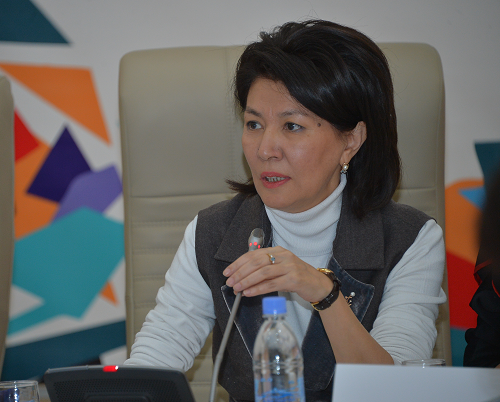
Director of KazISS under the President of the Republic of Kazakhstan, corresponding member of the National Academy of Sciences of the Republic of Kazakhstan Zarema Shaukenova, noted in the introductory speech that, the Association of Sociologists of Kazakhstan actively participates in the implementation of the «Рухани жаңғыру» program, the results of this work and new directions of research were discussed held in the fall of 2018 in Astana. The article «Seven Facets of the Great Steppe» by Elbasy, being a continuation of the «Рухани жаңғыру», received a wide response from the public, academia and experts.
Representatives of various fields of humanities find in it new objects of research, which provide an opportunity for modern reading of the country's historythrough the past of the peoples inhabiting the territory of present-day Kazakhstan.
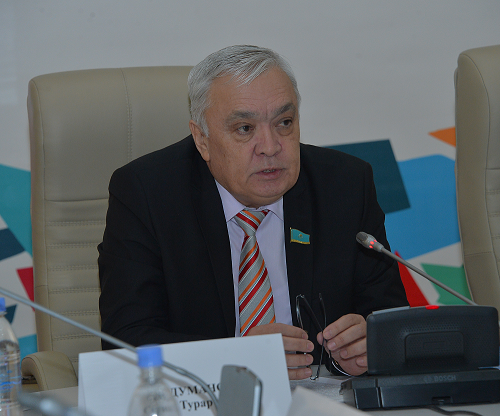
Vice President of the Association of Sociologists of Kazakhstan, Corresponding Member of the National Academy of Sciences of Kazakhstan Serik Seidumanov stressed that «if we expand the horizons and engage in the scientific search directions indicated by the President in the article, not only historians and archaeologists, but also genetics and linguistics, we will get big story». In this case, in his opinion, our domestic researchers in the study of the social development of the Great Steppe should adopt the methodological tools and achievements of world researchers in the field of philosophy, geography, and biology, especially in the field of sociology.
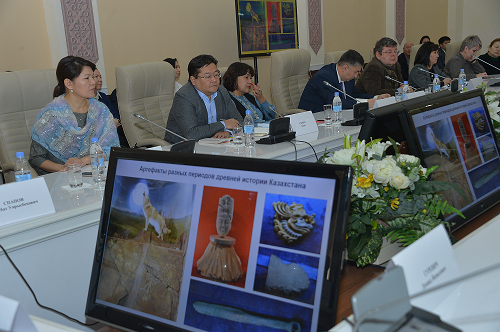
Dean of the faculty of history, archeology and ethnography of the Al-Farabi Kazakh National University. Professor Mendigul Nogaybayeva drew the attention of the meeting participants to the need to study the development of the steppe civilization as an integral process. She said - «It is important not to lose in the era of globalization and the dominance of mass culture the historical heritage of our ancestors, which allows the people of Kazakhstan today to feel their originality, immensity of the depth of the treasury of national culture».
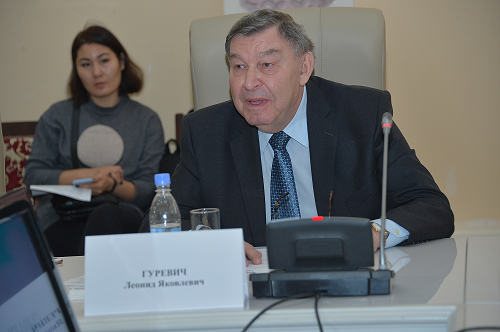
Professor Leonid Gurevich, President of the center for business information, sociological and marketing research «BISAM Central Asia», noted that a very important point in the President’s article is criticism of Eurocentrism.
«Departure from Eurocentrism is today the main trend of world social studies», the speaker emphasized. Many, not only classical, but also modernist and postmodernist theories are crumbling, as it turns out that their fallacy is due to geographical narrowness. Under these conditions, social scientists of Kazakhstan have a unique chance - not just to integrate into the world scientific space, but to do it on an equal footing».
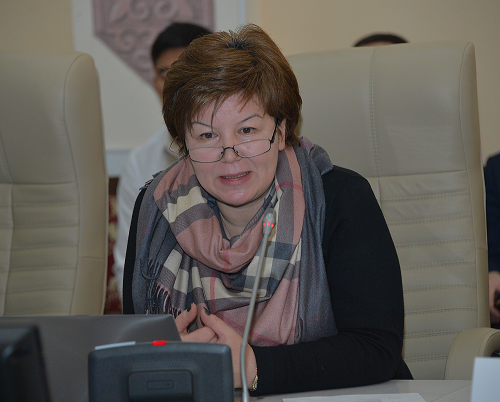
The chief researcher of the KazISS under the President of the Republic of Kazakhstan, doctor of historical sciences Lesya Karataeva focused on the tasks that are on the agenda, namely, «promotion of methodological culture of the researcher among young professionals, as well as the diversification of theoretical and methodological areas that could form independent scientific schools that can compete not only in the domestic field, but also at the global level».
The participants of the meeting also discussed the issues of knowledge of history and key trends of modern social science, modernization of consciousness and development of historical science, the possibility of transferring the symbolic meaning and meaning of the seven facets of the great steppe through innovative technologies and interactive techniques.
The event also included an acquaintance with the historical and artistic exposition «7 facets of the Great Steppe», opened in the al-Farabi Kazakh National University.
















